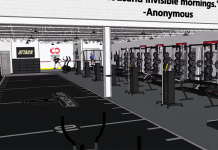So, when was the last time you went to the hospital to get your nails done? Or when was the last time you pulled into the visitor parking lot of your local medical center to grab a quick cup of gourmet coffee before heading into work?
I am guessing that your answer is probably “never.”
Well, don’t be surprised to find this becoming a more common occurrence in the next few years. The reason is that there are two powerful forces in play right now within Michigan’s economy and emerging workforce development initiatives.
The first source springs from increased demand for high quality, non-clinical health care services. As the baby boomer population ages, there will be an added need for health-related care offerings. Since this aging population is more affluent than its previous generation, there are greater expectations surrounding the overall care and “hospital experience” of patients, visitors, and hospital staff. This means that there is an even greater focus on non-clinical services.
So, what are non-clinical services? These are the services that are not directly related to patient care. This would include places like cafeterias, gift shops, and waiting rooms that currently dot the hospital landscape. It is clear that these traditional venues are not meeting the needs and expectations of the medical community. That is why, in the very near future, you will be seeing a greater focus on the “customer experience” in health care. This focus will include everything from beauty salons, restaurants, bookstores, and even laundry services. Hospital systems will be taking a cue from modern airports, targeting revenue through expanding and heightening the services they provide to their captive audience.
This fact leads us right to the second force of change: displaced workers and the need for new jobs. I spoke recently with Tom Schumann, executive director of the Institute for the Advancement of Nursing and Healthcare at Oakland University in Rochester Hills. He says that there is currently a strong focus on the retraining of displaced workers into health care.
“Contrary to current assumptions,” Schumann says, “many health care positions do not require constant and direct patient contact.” He also notes that basic skills required for both clinical and non-clinical jobs include:
- Strong communication
- Service-oriented focus
- Social perceptiveness
- Reading and Listening Skills
- Judgment and Decision-Making
If you think about it, aren’t these skills directly related to creating a positive customer experience in almost any job? If you buy into this, then you may just be a candidate for one of the new non-clinical, retail employment opportunities in health care.
Check out your local hospital career sites online and attend a healthcare career fair. You may be surprised at the unique job opportunities that are popping up.












